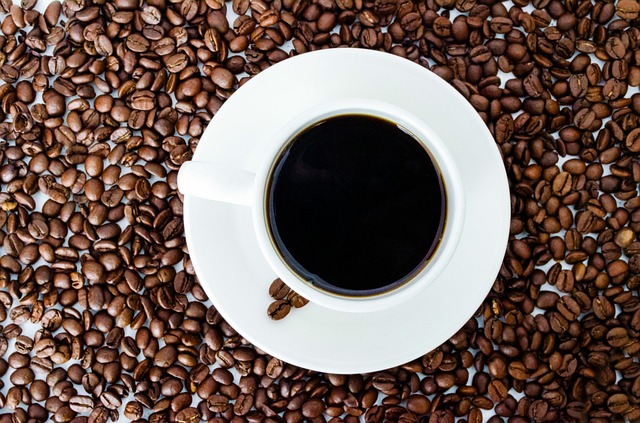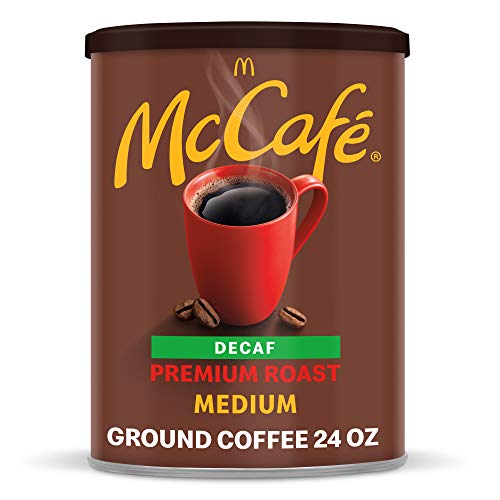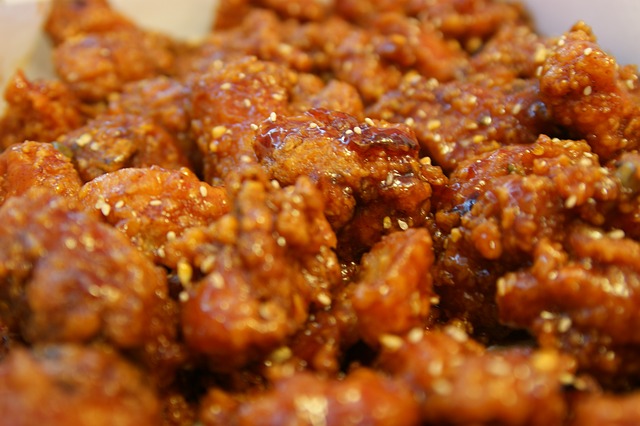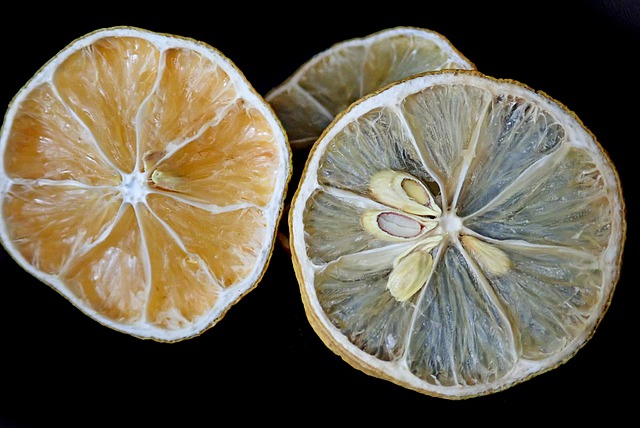
Whether you’re looking for a morning jolt or trying to cut down on caffeine, decaf coffee can be a great choice. But with so many brands and varieties available, which one should you choose? Consumer Reports’ latest report can help. According to their research, these are the best decaf coffee consumer reports on the market.
So if you’re in the market for a good cup of decaf, be sure to check out one of these top-rated brands. You won’t be disappointed!
The following are the findings from Consumer Report’s best decaf coffee review. Decaffeinated coffees have been popular for years, but there is no industry standard to determine which beans actually lose their caffeine content through processing. This lack of regulation has led many people to question whether or not these products really offer any benefits at all. Consumers report that this product does what it claims and offers a great taste without being overwhelming in flavor. If you’re looking for an enjoyable cup of decaf coffee, then take a look into this one!
Top 10 Best Decaf Coffee to Buy in 2022:
*Note: Score is rated from our Editors and AI.
Table of Contents
Decaf Coffee
Decaf coffee is a popular alternative to its caffeinated counterpart. But what exactly is it, and how does it compare?
The term “decaffeination” may be new for most of us, but the process itself has been around for centuries. In this article we’ll take a more detailed look at decaf coffee and answer some basic questions such as – where does decaf come from, who drinks decaf, and how many cups of regular vs. decaf do people drink every day?
What Does Decaf Coffee Taste Like?
There’s really no major difference between the taste of regular and decaf coffee. Some people like to drink one or the other based on their personal preference (i.e., caffeine vs. no caffeine), but the primary difference is that decaf coffee has had all of its caffeine extracted during the decaffeination process.
What is Decaf Coffee – History
There are records of people using plants with mild sedative qualities as far back as ancient Egypt around 1000 B.C., where it was apparently popular among upper-class women who used them to relax, relieve anxiety and reduce stress.
It wasn’t until Germany’s Frederick The Great conquered the country of Arabica in 1723 that coffee began taking off with regularity in Europe, reaching America soon after. It was probably fortuitous timing for coffee drinkers throughout Europe and America because at this time doctors were prescribing bed rest for just about everything, including upset stomachs.
Since coffee was an ideal drink to serve to patients in bed, it became a hot commodity among the medical profession and its popularity spread quickly throughout society. After all, not only did coffee help revitalize people who were sick or fatigued, but it also gave them the mental stimulation necessary for completing daily tasks – especially after long nights of no sleep. The economic impact of this increased productivity proved even more beneficial to society by increasing commerce exponentially.
How is It Made?
The process of removing caffeine from coffee beans is achieved through one of two methods: water or CO2 (carbon dioxide). Each method has pros and cons which we’ll look at here briefly . For simplicity’s sake, this article will primarily focus on water-processed decaf coffee.
Water process decaf is the most common form of best decaf coffee consumer reports, and it’s often thought to be superior in terms of taste when compared with CO2-processed varieties. The reason for this is because the caffeine extraction rate during the water processing method is typically less than 5%, while CO2 methods extract anywhere from 15% to 30%. Some experts believe that higher caffeine extraction levels result in a “stale” flavor due to over-processing. It should also be noted here that low levels of caffeine are retained by beans which are processed using the water method, so there isn’t much risk of residual amounts making their way into your beverage.
Carbon dioxide-processed decaf coffee is the other way to remove caffeine from coffee beans, but it can sometimes result in diminished flavor. While carbon dioxide-extracted coffees are known for their purity and lack of “off” flavors, over-processing can lead to increased levels of loss due to permeation (which is when the CO2 escapes) during the process – especially if it’s done at very high pressures.
Benefits Of Decaf Coffee
Before the era of coffeehouses and espresso bars, most coffee was decaffeinated before it was consumed. The decaffeination process used chemicals that were not safe to consume.
– No Caffeine
Nowadays these chemical treatments are still being used but modern methods have become popular that use carbon dioxide or water to strip caffeine from the beans. This has made it possible to enjoy a good cup of coffee without worrying about how much caffeine you’ve had. Decaf drinkers can rest assured their drink is 100% free of caffeine. The only downside is lack of flavor in some cases due to removing large amounts of tasty oils along with the caffeine!
New techniques keep more flavorful oils in the bean while removing nearly all the caffeine.
– General Health
It’s not just about caffeine. The best decaf coffee consumer reports has other benefits that may affect general health of the drinker. It may promote better liver function, prevent cancer and aid in weight loss.
However, no studies have proven any of these claims to be true despite passionate assertions from decaf drinkers who feel it does make a difference in their lives. These are all personal experiences based on anecdotal evidence rather than rigorous clinical tests or scientific peer review articles on PubMed.
If you enjoy non-caffeinated coffee drinks, go ahead and drink them without guilt! But don’t depend on them for anything more than the pleasure of tasting something delightful once in awhile. If you like the best decaf coffee consumer reports because you have a hard time sleeping after caffeine, consider switching to herbal teas as a healthier alternative.
– Sleep
For those who believe that drinking decaf helps them sleep better, one could argue that caffeine causes arousal at night and disrupts your sleep. This is why many people feel refreshed from a cup of soothing chamomile tea before bedtime instead of a strong coffee drink. Just make sure you don’t put anything in the tea that has any caffeine! Remember, even small amounts of caffeine can affect some people’s ability to fall asleep or stay asleep for awhile.
What are some Common Methods to Decaffeinate Coffee Beans?
Are you a coffee lover? Do you have trouble sleeping at night because of the caffeine in your system? If so, perhaps it is time to learn how to decaffeinate coffee beans. Many people choose to brew their coffee with decaf beans, but others must drink regular ground coffee if they want a good cup of java. The problem is that many methods used to remove caffeine from roasted beans end up removing a lot of flavor too. There are several effective methods that will allow you to separate the caffeine from your ground coffee without compromising on taste or quality.
– The Swiss Water Process
In this process green coffee beans are steamed and their skins removed before being put through a carbon filtration system. This treatment uses only water for removing caffeine, which means it is a chemical-free process that is very beneficial for the health of the coffee drinkers. The caffeine removed from the beans are then sold to pharmaceutical industries or used in other commercial products.
– The Other Water Process
This method of removing caffeine while preserving flavor does not involve water at all. Instead, CO2 (carbon dioxide), which is an odorless and tasteless gas, can be used to remove coffee’s caffeine content without stripping the beans of their natural flavors. However, not many people actually use this process because it has just recently become more popular than others that require less cost and effort to run.
– Previous Methods of Decaffeinating Coffee Beans
As mentioned earlier, several methods have been used in years past to decaffeinate coffee beans. The drawbacks of these processes were that they often took as long as three days and some even required the use of chemicals to remove caffeine from roasted beans.
– The Ethyl Acetate Process
In this method, ethyl acetate is used for decaffeinating coffee beans quickly and effectively. However, this chemical also reduces the quality and flavor of the final product and it can only be used on certain types of green coffee beans before it becomes ineffective. Finely-ground coffee produced with this process does not retain its natural oils very well, which means less flavor in your cup of java!
– The Methylene Chloride Process
Methylene chloride is another common chemical that was often used in years past to decaffeinate coffee beans. This method was effective at removing caffeine, but it also removed some of the finer notes in your coffee. While this process is still used in some countries today, many people choose to avoid chemically-treated food products when possible.
Coffee Bean Decaffeination Methods You Can Use at Home
Now that you know more about common methods for decaffeinating coffee beans you might be wondering how you can remove caffeine from roasted beans without actually using chemicals or complicated treatment systems. Fortunately, there are several ways in which you can decaffeinate ground coffee beans in your own home so that they will brew a better cup of cocoa or tea without losing their delicious flavor and quality!
– The Cold Water Process
Boil water and brew your coffee with it just as you would usually do. Then, discard the liquid that remains in your pot or cup after drinking your beverage so that no caffeine is left behind.
– The Hot Water Process
Fill a pot with regular ground coffee beans and cover them with boiling water before letting them sit for 12 hours or overnight. Discard the liquid when you are done and pour fresh water over the beans before brewing another pot of java using the same grounds.
– The AeroPress Process
A simple way to decaffeinate roasted coffee beans without sacrificing taste or quality is by using an AeroPress Coffee Maker. This versatile system allows you to mix hot water with freshly-ground coffee which is then pressed through a filter and into your cup. By doing this, you can ensure that the caffeinated liquid is separated from the beans with ease and enjoy a rich beverage in no time!
– The Cold Brew Process
Place some regular ground coffee beans in a French press and add water before letting them sit overnight (at least eight hours). Once it is done, slowly push down your plunger to separate the liquid from the grounds and pour yourself a cup of iced coffee. Discard or compost the used grounds when you are done.
– The Vacuum Coffee Maker Process
Using a vacuum coffee maker provides you with one of the easiest ways to decaffeinate your beans without sacrificing flavor or quality! These “siphon” style brewers suck hot water up through the machine and into a glass flask containing your ground coffee beans. When it is done, you simply remove the carafe from the brewer and enjoy a rich beverage without worrying about caffeine or other additives!
– Use Green Coffee Beans
The next time you buy roasted beans to brew at home, try shopping for green coffee instead. This type of roasted bean does not contain any caffeine because it has not been roasted yet – they are just regular unroastedcoffee beans by another name!
You’ll notice that no matter which method you choose to decaffeinate your own coffee beans they will taste better than those that have been chemically-treated and processed with less care . Now that you know more about various processes for removing caffeine from coffee beans , you can start enjoying a richer beverage with your morning cup of cocoa or afternoon cup of tea!
FAQs About Best Decaf Coffee Consumer Reports
Why Are So Many People Turning To Decaf Coffee?
Decaf coffee offers health benefits beyond those of regular coffee. It contains antioxidants and may reduce the risk of certain cancers and cardiovascular disease.
Is Decaf Bad For You?
Caffeine is not the only chemical in coffee that can affect your health. Many studies have looked at caffeine, but results haven’t always been consistent because some research has lumped caffeinated and decaf together as “coffee.” Most researchers now believe that caffeine isn’t as big a danger as once thought, as long as it’s consumed in moderation. The chemicals created by roasting the beans – not just caffeine – might be responsible for some of coffee’s health benefits.
How Is Decaf Coffee Made?
The best decaf coffee consumer reports starts out just like regular coffee – with green (unroasted) beans. The beans are soaked in a chemical solution that brings the caffeine out of the bean and into the water, which is then drawn off and discarded. Then using either a steam process or carbon dioxide process, the caffeine is taken from the decaffeinated water and transferred back to the beans, where it remains until you brew them. In the case of Swiss Water Process® (“SWP”), an organic solvent such as carbon dioxide or methylene chloride is used to remove 97-99% of the caffeine from beans before they are reintroduced to their original moisture and the coffee is roasted.
How Does Swp Process Produce Better Tasting Coffee?
The SWP decaffeination process produces lighter colored beans because it uses only pure water so there are no chemical residues remaining in the beans.
How Is Swiss Water Process Decaf Coffee Different?
Most decaffeinated coffees use a chemical, such as methylene chloride, to remove caffeine from green (unroasted) beans before roasting. SWP uses an all-natural process where green coffee is processed only with pure water so there are no chemical residues remaining in the beans or brewed coffee. The result: a superior tasting decaffeinated cup of coffee that retains more flavor and less bitterness than other methods of removing caffeine.
>>> See more: Decaf Coffee: Healthy or Unhealthy? | Best decaf coffee consumer reports
Conclusion paragraph: Consumer Reports recently released their findings on the best decaf coffee. According to their research, there are a few brands that rose above the rest in terms of taste and quality. If you’re looking for a great cup of decaf coffee, these are the brands you should try. And if you have a favorite brand that didn’t make it onto Consumer Reports’ list, be sure to let us know in the comments!
Read more:













